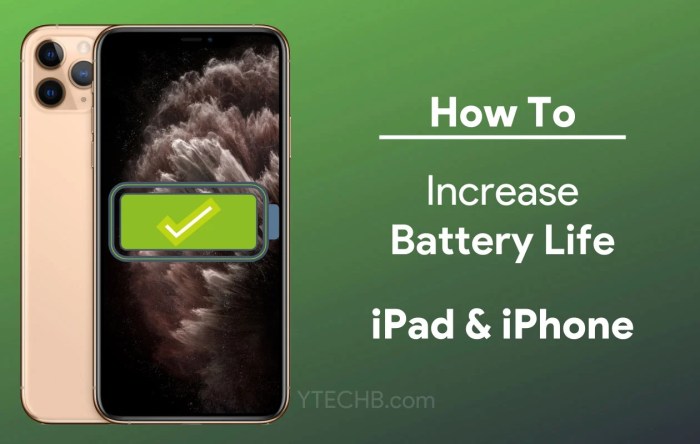Apple hiring improve battery life? It’s more than just a headline; it’s a peek behind the curtain at how Apple’s quest for longer-lasting iPhones and Macs is fueled by strategic recruitment. We’re diving deep into Apple’s hiring practices, exploring the specific skills they seek in battery engineers, and uncovering how these new hires directly impact the technology in your pocket (or on your desk). Get ready to unravel the secrets behind Apple’s battery breakthroughs.
This exploration goes beyond simply listing job requirements. We’ll analyze Apple’s approach compared to competitors, highlighting potential improvements to their recruitment process to attract even more top talent. We’ll also examine the ripple effect of these hires – how they contribute to innovation, the timeline for seeing results in new products, and the challenges of integrating new expertise into established teams. Buckle up, because this is a deep dive into the power behind the power.
Apple’s Hiring Practices and Battery Life Improvement: Apple Hiring Improve Battery Life
Apple’s pursuit of longer battery life in its devices is a continuous race against technological limitations. This relentless drive necessitates a highly specialized workforce, and Apple’s recruitment process for battery technology engineers reflects this demand. Understanding their hiring strategies offers insight into how they achieve—and potentially improve—their advancements in this critical area.
Apple’s recruitment for battery technology engineers is a rigorous process, prioritizing candidates with a deep understanding of electrochemical systems and a proven track record of innovation.
Apple’s Recruitment Process for Battery Technology Engineers
The process typically begins with an online application, followed by rigorous technical interviews assessing candidates’ knowledge of battery chemistry, materials science, and electrical engineering. These interviews often involve problem-solving exercises, coding challenges (particularly for roles involving software optimization related to battery management), and in-depth discussions of past projects. Candidates who successfully navigate the technical interviews move on to behavioral interviews, evaluating their teamwork abilities and cultural fit within Apple’s engineering teams. Finally, a final round of interviews with senior leadership may occur before an offer is extended. The entire process is known to be highly competitive, reflecting the premium Apple places on securing top talent in this field.
Skill Sets and Experience Prioritized by Apple, Apple hiring improve battery life
Apple prioritizes candidates possessing a strong foundation in electrochemistry, materials science, and electrical engineering. Specific skills sought after often include experience with lithium-ion battery design and manufacturing, thermal management techniques, battery modeling and simulation, and power management integrated circuit (PMIC) design. Experience with failure analysis and quality control is also highly valued, as is familiarity with industry standards and regulations related to battery safety. Furthermore, proven experience in optimizing battery performance within constrained device form factors is crucial. For example, a candidate might showcase their ability to design a battery that provides extended runtime without compromising the thin and light design of a new iPhone model.
Comparison with Competitors’ Hiring Strategies
Compared to competitors like Samsung and Huawei, Apple’s hiring process appears more focused on a holistic assessment of the candidate. While competitors may emphasize specific technical expertise more prominently, Apple seems to weigh a broader range of factors, including problem-solving skills, teamwork, and cultural fit, alongside technical proficiency. This suggests a focus not only on individual technical brilliance but also on the ability to contribute effectively within a collaborative engineering environment. This difference could stem from Apple’s highly integrated product development process, requiring engineers to work across multiple disciplines.
Potential Areas for Improvement in Apple’s Hiring Process
While Apple’s hiring process is effective, potential improvements could include diversifying recruitment channels to reach a broader pool of talent. This might involve actively engaging with universities and research institutions with strong battery technology programs globally, and participating in more industry conferences and recruiting events specifically targeting battery technology specialists. Furthermore, focusing on attracting candidates from diverse backgrounds and experiences could foster greater innovation and creativity within their engineering teams. A more proactive approach to identifying and nurturing talent early in their careers, perhaps through internship programs or early career development initiatives, could also help Apple secure future leaders in battery technology.
Ultimately, Apple’s pursuit of extended battery life hinges not only on technological advancements but also on the caliber of its engineering team. The strategic hiring of battery experts is a key component of their future success. While challenges remain in integrating new hires and overcoming technological hurdles, the potential payoff – longer-lasting devices and happier customers – is significant. The race for better battery life is on, and Apple’s hiring strategy is a crucial part of their strategy to win.
Apple’s latest hiring spree suggests a serious push to finally nail that elusive perfect battery life. It’s a far cry from the drama surrounding other big-budget projects, like the news that mark wahlberg not in uncharted movie – talk about a plot twist! But back to Apple; hopefully, this hiring blitz translates to phones that last longer than a Tom Cruise movie marathon.
 Insurfin Berita Teknologi Terbaru
Insurfin Berita Teknologi Terbaru
